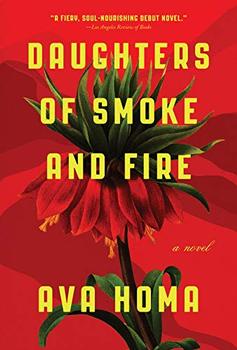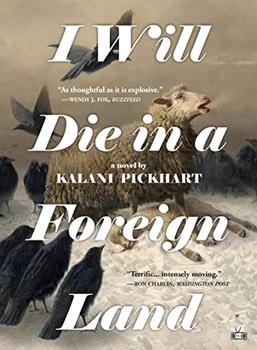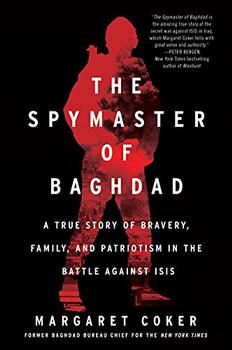Summary | Excerpt | Reading Guide | Discuss | Reviews | Beyond the book | Read-Alikes | Genres & Themes | Author Bio

A Novel
by Ava HomaAva Homa's debut novel begins with an epigraph by Sherko Bekas, a Kurdish poet, the last lines of which are, "You had to write poetry with the tip of a flame / And set fire to your fear and silence." This is precisely what the author accomplishes, fearlessly crafting a work at once beautiful and terrifying, shattering and tenderly hopeful. Through the life of a young Kurdish woman, Homa shines a light on the history of the Kurds, a story defined by brutal oppression but also rich with resistance and resilience.
The novel tells of the coming of age of Leila Saman, born in the Kurdish region of Iran. It spans five decades, from 1963 when her father witnessed the brutal massacre of his family by government troops, to the time of Iran's violent suppression of the Green Movement in 2009. Leila dreams about, "attending university, having my own job, buying my first camera, making films," but she has multiple obstacles in her way. She is Kurdish, female, impoverished, and the daughter of a man who spent four years in Iran's infamous Evin Prison for the alleged crimes of being "antirevolutionary" and possessing two banned books by Kurdish authors. Leila and her younger brother Chia are defined by the campaign of ethnic persecution; Leila's father was arrested on the night her mother informed him she was pregnant, and Chia was born on the day Saddam Hussein blanketed Halabja, the town their father was from, with chemical weapons.
Leila is caught between worlds. She was born in Iran, but is not accepted as Iranian because she is Kurdish. She says it is as if the country is telling her, "Live here, but you'll never be one of us." She is female in a culture that denies women value and freedom; she is Kurdish in a country where she is beaten in school for speaking her language; she is born to parents too wounded by their pasts to provide love and affirmation. The marks of torture on Leila's father's back are symbolic of the cultural DNA he passes down to his children. "The whip," Leila muses, "had indiscriminately left its crisscrosses on our backs."
Because their parents are often absent, Leila is Chia's caregiver: "The stars glittered on the long skirt of the sky, indifferent to the knots that snarled inside Chia and me as we waited on the staircase outside the kindergarten, waited to be missed, to be remembered, to be picked up." To comfort her brother, Leila creates stories and recites Rumi's poetry. Poetry and story are woven throughout the novel, both in Homa's stunning prose and in literary quotes. With these threads, she reminds the reader that from the flames of suffering, creative work is born.
When Chia is accepted at Tehran University, Leila moves with him to the city. A bibliophile since childhood, she finds employment at an independent bookstore that is her, "source of income—and joy." With her savings, she buys a video camera and films stories of life in Tehran. Following in his father's footsteps, Chia becomes increasingly political and the Green Movement demonstrations that began with Mahmoud Ahmadinejad's questionable reelection rage in the background. Despite her pleas, Chia joins the protests and does not return home. For the first time in her life, Leila is helpless to protect him. But through her efforts to keep her brother safe, Leila discovers her voice and her strength. She speaks out not only for Chia but for the Kurdish people as well. In Iran, this is a dangerous path, and she soon finds herself threatened with the government's wrath.
Daughters of Smoke and Fire was inspired by Farzad Kamangar, a Kurdish writer, teacher, and activist tortured and executed by the Ahmadinejad regime. Through her characters, Homa gives voice to the struggles of a people who have been without a state since their territory was divided in the 17th century. This work is urgent and necessary. It is a story of resistance, but beyond that, it's the story of the power of the creative spirit to rise above oppression and endure. It's a story of the power of love and hope.
![]() This review was originally published in The BookBrowse Review in June 2020, and has been updated for the
May 2021 edition.
Click here to go to this issue.
This review was originally published in The BookBrowse Review in June 2020, and has been updated for the
May 2021 edition.
Click here to go to this issue.

If you liked Daughters of Smoke and Fire, try these:

by Kalani Pickhart
Published 2022
Set in Ukraine in 2013, I Will Die in a Foreign Land is an especially moving story of quiet beauty and love in a time of terror; an ambitious, intimate, and haunting portrait of human perseverance and empathy.

by Margaret Coker
Published 2022
From the former New York Times bureau chief in Baghdad comes the gripping and heroic story of an elite, top-secret team of unlikely spies who triumphed over ISIS.
Some books are to be tasted, others to be swallowed, and some to be chewed on and digested.
Click Here to find out who said this, as well as discovering other famous literary quotes!
Your guide toexceptional books
BookBrowse seeks out and recommends the best in contemporary fiction and nonfiction—books that not only engage and entertain but also deepen our understanding of ourselves and the world around us.